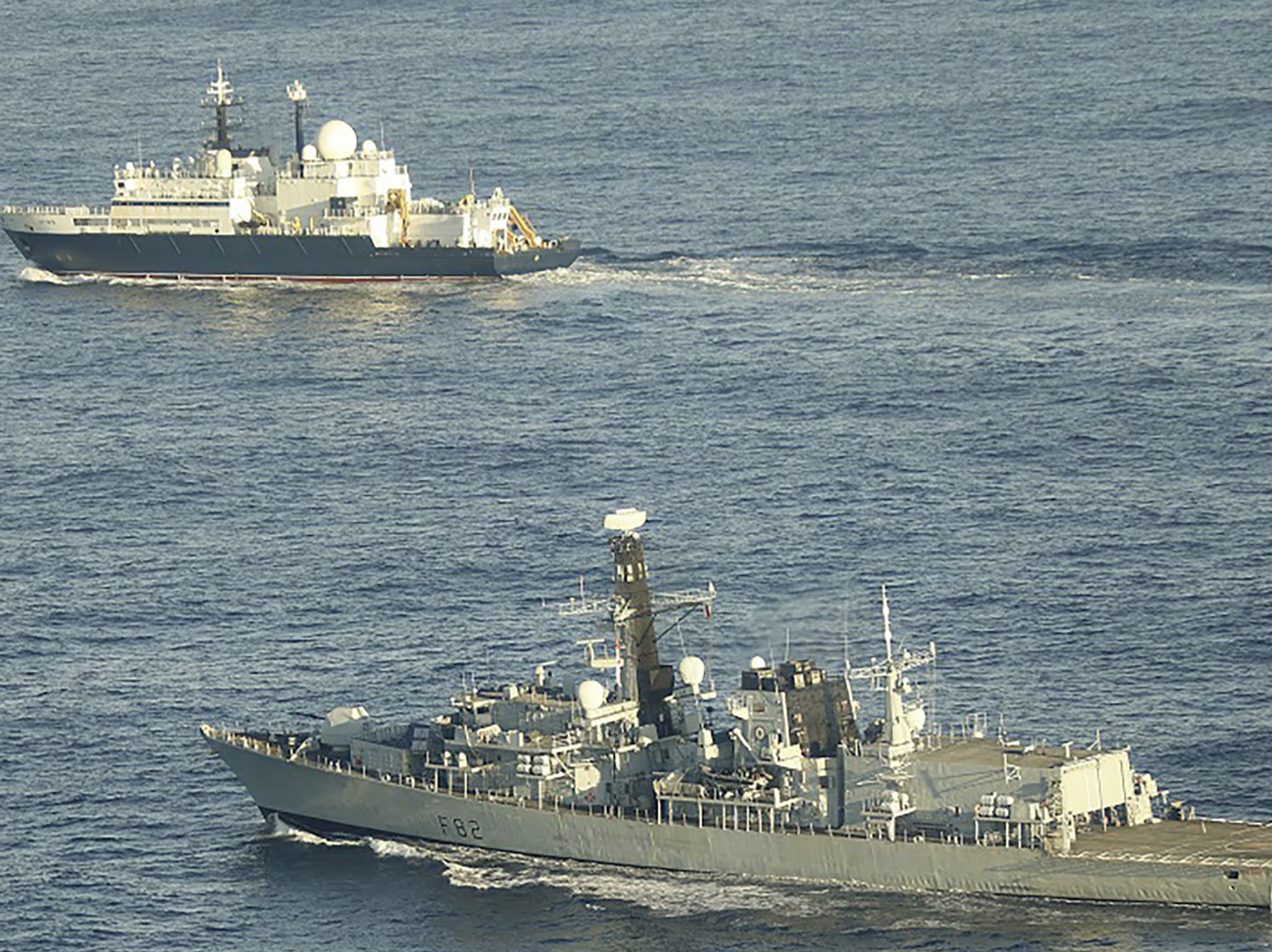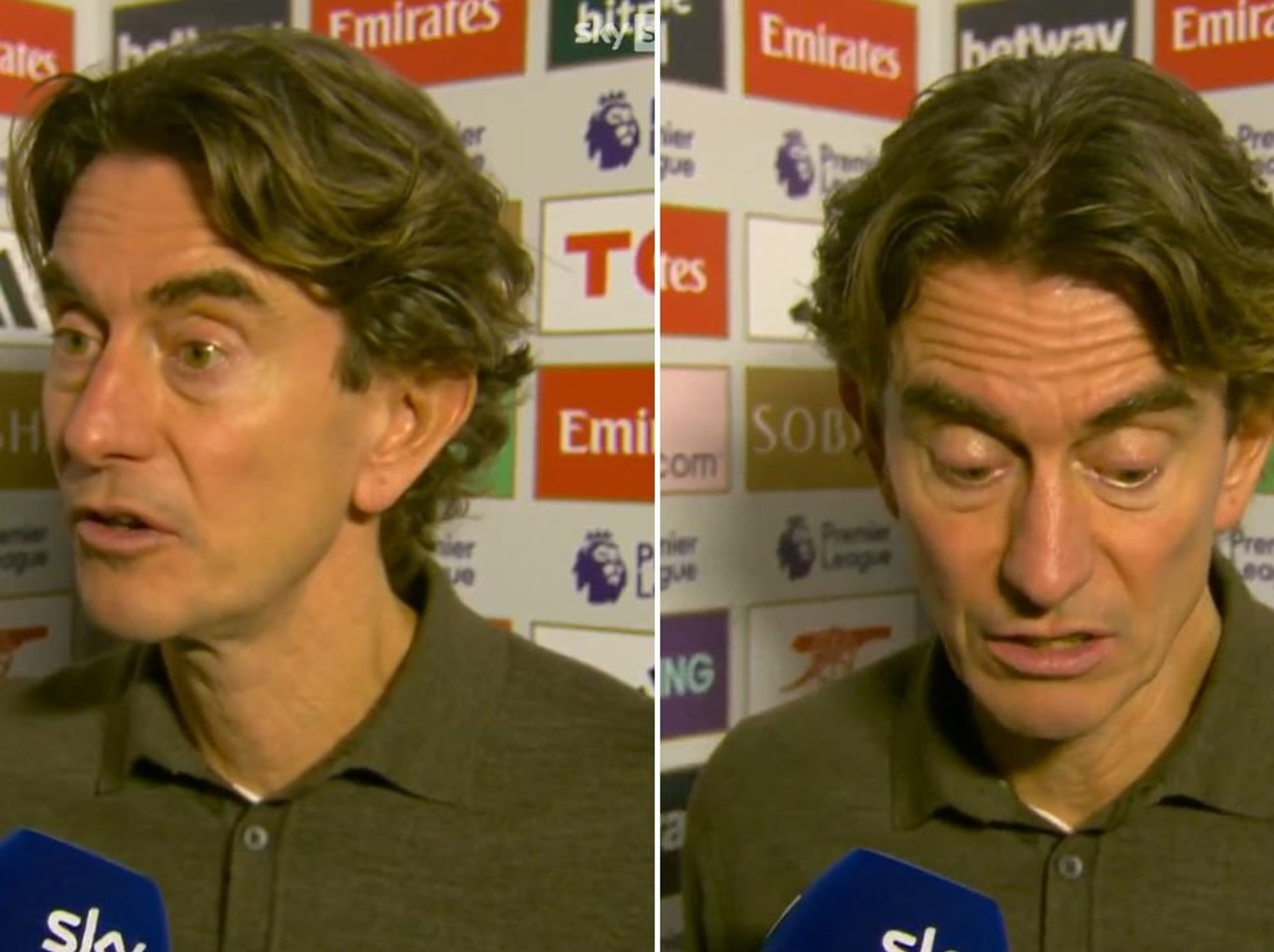Neil Oliver: I stand firmly with the Canadian pilgrims in their trucks

'Each of us has the chance and the choice to make an honest stand'
Don't Miss
Most Read
Latest
This week I got a letter from a family for whom life, where they are in the world, has been made unliveable by the pressure to vaccinate their children. Pushed beyond endurance, they have packed up all that they own, and are moving on, in hopes of a better life elsewhere. It was the mother of the family who wrote the letter.
In her sign off she said: “Nothing stays the same, but there are to be found some absolute truths that are worth standing and fighting for.” That erstwhile strangers have been writing to me in this way, expressing thoughts so meaningfully, so beautifully, has been one of the greatest privileges of my life so far. “… some absolute truths … are worth standing and fighting for.”
The letter moved me because it resonated with my own thoughts – not least the desire to get away from all the madness, the dream of the freedom to live a life unmolested by an over-mighty State.
From very early on in this drama, this mostly man-made drama, I have thought about moving on. Together my wife and I have speculated about available options, such as they are. It has been little more than a daydream though, usually little more than thoughts of an island somewhere, out of sight and out of reach of those who would force upon us a life we do not want for ourselves right now, and more importantly for our children in the always uncertain future.
It’s a good dream, but one the modern, globalised world has made very hard to make real. For anyone frightened by what is happening, anyone refusing, in their own small way, to submit to this or that government diktat – where in the world can they go? For the first time in history, we are within sight of a world that is One World – all the same place.
In the past, if you didn’t like the king, or the culture, you could go somewhere else – like those pilgrims who departed England in the 17th century, to make a New World on the other side of the Atlantic Ocean.
Now we’re approaching a time – if, indeed, we’ve not already arrived – when there is nowhere else. More and more, everywhere on Earth seems to be the same, afflicted by the same madness – the march towards one monolithic state bent on the total control of our lives.
Sometimes when thoughts are too bleak and overpowering, it is worth lifting the head and looking upwards. The space probe Voyager 1 left planet Earth on the 5th of September, 1977. Its unimaginable odyssey saw it pass close by Jupiter and Saturn, taking photographs all the while and transmitting them back to the home planet.
Sometime in the August of 2012, after 35 years of hurtling flight into the void, Voyager left behind the heliosphere – the vast protective bubble provided by the Sun and her solar wind – and entered the unthinkable cold and emptiness of interstellar space.
Voyager 1 is now approximately 14 billion miles from Earth – the furthest flung human made object in existence. If it doesn’t hit anything, in around 40,000 years Voyager will pass within 1.6 lightyears – nearly ten million, million miles – of a star called Gliese, in the constellation Camelopardalis.
That will be as close as Voyager gets to any other sun, any other scintilla of warmth, in all of that time. That is the nature of the empty, vastness of space. If Voyager teaches us anything, it is that here on Earth is the only place we have. We might send more probes to take more photos of far away places and send them back to us – but our species won’t be going there. Not for the longest time, if ever.
Aboard Voyager 1 is a record, an old-fashioned disc like the vinyl ones some of us remember, but this one made of gold-plated copper. It carries all sorts: pictures of life on earth, scientific information, the song of whales, and the voice of a crying baby, waves breaking on a beach and also music by many artists, including Mozart, Chuck Berry and Blind Willie Johnson. He performs his song Dark was the Night and Cold the Ground, about Christ’s suffering and fear on the night before his crucifixion.
It is also the howl of pain of a man facing nightfall with nowhere to sleep, nowhere safe to rest his weary head.Timothy Ferris of Nasa, who chose the song, said: “Since humans appeared on Earth, the shroud of night has yet to fall without touching a man or woman in the same plight."Ferris said that in 1977 – and 45 years later it is still true.
Nothing else of us, made by us, has ever been so far from us as Voyager is now. Alongside the golden record is a map giving directions to Earth, and pictures of a man and a woman. The idea, forlorn though it might be, is that some other intelligence might stumble across Voyager and use the map to find us. A message in a bottle adrift in the ocean of space.
Long after we are all gone, every trace, Voyager 1, its plaque and its golden record, will survive to tell eternity that we were ever alive in the universe. Her cargo is a distillation of what seemed to matter here in 1977, this world as it was when I was 10 years old. Sometimes I miss that world of the ‘70s very much, and think that if I could make a gift of it to my own children, then I surely would. In February 1990, at the instruction of cosmologist Carl Sagan, the camera aboard Voyager was instructed to turn back to face in the direction from which she had come, one last look before disappearing into the invisible.
Writing about the photo in 1994, Sagan noted: “That's here. That's home. That's us. On it everyone you love, everyone you know, everyone you ever heard of, every human being who ever was, lived out their lives …“Our planet is a lonely speck in the great enveloping cosmic dark. In our obscurity, in all this vastness, there is no hint that help will come from elsewhere to save us from ourselves.” Sagan was a genius, and also a poet. There are those among us who would change our world beyond recognition.
Some days now, it is hard not to feel they’ve already won. And then last week I began watching another odyssey – here on Earth. A convoy. Tens of thousands of truckers in Canada en route to their capital city, Ottawa, there to protest about vaccine mandates and much else conjured up by their prime minister, Justin Trudeau, in the past two years. Figures are always hard to gauge, far less to verify, but I repeatedly read that 1.4 million people were on the move towards the Canadian capital – there to have their voices heard.
As I said on social media last week, every once in a while I envy the jobs of others. All week now I have been wishing with all of my heart that I was a trucker. In Canada. Thundering towards Ottawa. What a grand adventure – so grand I don’t know whether to cheer or cry about it. Perhaps both. Of this planet of ours, this Pale Blue Dot, Carl Sagan wrote: “There is perhaps no better demonstration of the folly of human conceits than this distant image of our tiny world. To me, it underscores our responsibility to deal more kindly with one another, and to preserve and cherish the pale blue dot, the only home we've ever known.”
If the last two years have had anything to teach, then it is surely that we must deal more kindly with one another. For now, we could start by ending the bullying and coercion of those who have made the choices to which they are entitled as free human beings. We could agree that a person has the right to feed their family without having to submit to a medical procedure of uncertain efficacy, uncertain safety.
We could agree to leave the children alone. We could take off our masks and smile at one another. I think about a family left with no option but to leave their home and their lives in hopes of finding peace elsewhere. I hope with all my heart that they find that peace. Sagan urged us all to notice the blood spilled by generals and emperors in hopes of becoming “momentary masters” of a fraction of a dot. He wrote about “endless cruelties” inflicted by some inhabitants upon others.
I watched that thin dark thread upon the snow of Canada, a thread made of thousands upon thousands of trucks and unspooling like the uncertain future, and I prayed it would make the difference that is so sorely needed. Carl Sagan said that, Like it or not, for the moment, the Earth is where we make our stand … Each of us has the chance and the choice to make an honest stand. I stand with that family on the move, and with those Canadian pilgrims in their trucks.











